Space
Sign up for our newsletter
We summarize the week's scientific breakthroughs every Thursday.
-
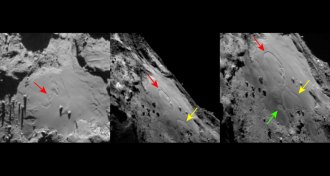 Planetary Science
Planetary ScienceMysterious circles appear, grow on comet
The Rosetta spacecraft caught five circular depressions quickly spreading across a region of comet 67P.
-
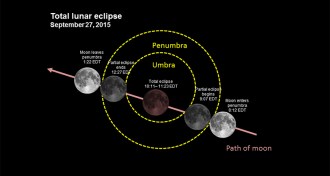 Astronomy
AstronomyThis weekend, lunar eclipse coincides with supermoon
On September 27, sky gazers will be treated to a rare type of total lunar eclipse.
-
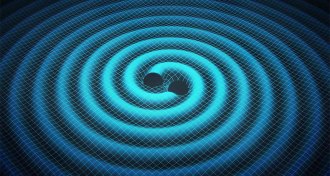 Astronomy
AstronomyBlack hole collisions evade detection
The environment in the centers of some galaxies might inhibit gravitational waves radiating from supermassive black holes, a new study suggests.
-
 Cosmology
CosmologyComplexity in the universe, hidden craters and more reader feedback
Readers discuss order and disorder in the universe, the languages of science communication and more.
-
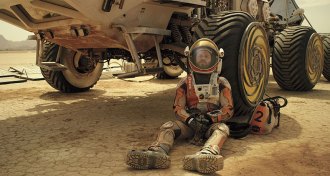 Planetary Science
Planetary Science‘The Martian’ is entertaining science fiction rooted in fact
With NASA’s help, filmmakers made story of astronaut stranded on Mars believable.
-
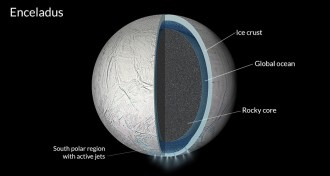 Planetary Science
Planetary ScienceEnceladus’ ocean goes global
A subsurface liquid water ocean envelops Saturn’s icy moon Enceladus.
-
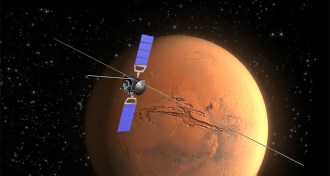 Planetary Science
Planetary ScienceMars’ ionosphere mystery explained
A decades-old disagreement between the Viking landers and spacecraft buzzing around Mars might come down to what time of day each was investigating the Red Planet’s ionosphere.
-
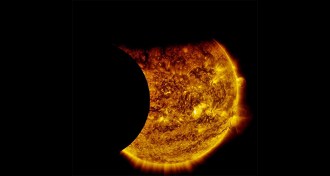 Planetary Science
Planetary ScienceSatellite captures double solar eclipse in action
NASA’s Solar Dynamics Observatory caught a rare double eclipse as both Earth and the moon partially blocked the sun.
-
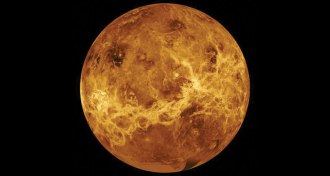 Planetary Science
Planetary ScienceAsteroid impacts may explain Venus’ missing oxygen
Asteroid impacts on Venus might have helped sequester oxygen left behind when Earth’s sister planet lost its water, new simulations show.
-
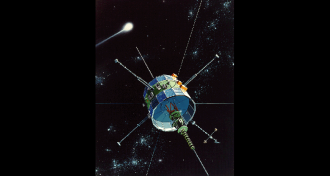 Planetary Science
Planetary ScienceThe first spacecraft buzzed a comet today in 1985
Thirty years ago, a spacecraft became the first to fly past a comet.
-
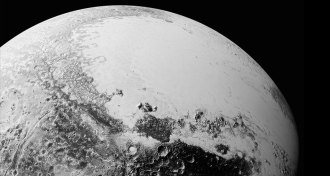 Planetary Science
Planetary ScienceNew Pluto photos show unprecedented detail
New images from the New Horizons spacecraft show off Pluto and Charon in unprecedented detail.
-
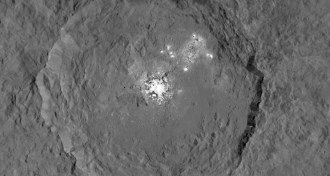 Planetary Science
Planetary ScienceCeres’ mysterious bright spots come into focus
The Dawn spacecraft gets its best look yet at bright spots on Ceres.